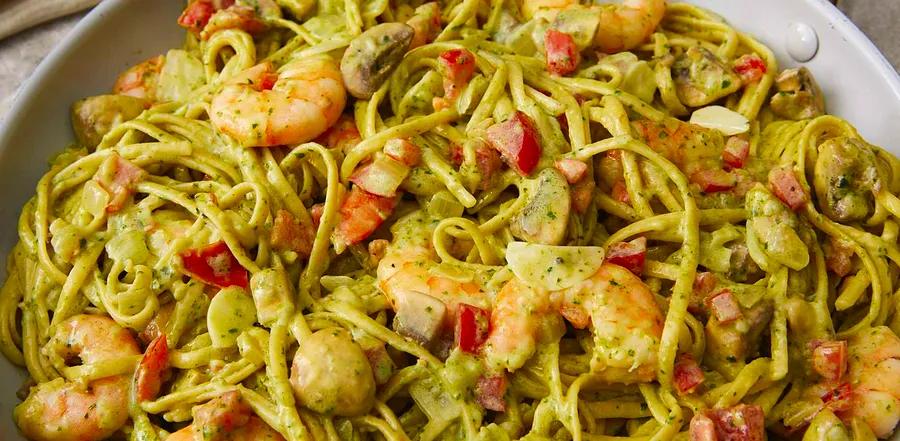Meet eight Maasai rangers – the first women in their families to find employment – who are working to combat poaching around Kenya's Amboseli National Park.

After four months away, Maasai ranger Purity Lakara, who patrols the lands of Amboseli National Park – famous for its wild elephants and stunning views of Mount Kilimanjaro – is thrilled to finally return home to see her family since the onset of the Covid-19 pandemic.
'I’ve missed everything – eating together, playing with my baby girl, fetching water for my mother, and even helping my brothers herd cattle,' she says. 'I’ve missed all the things we normally do when I’m at home.'
At 23, Lakara is one of eight women – the first in their families to secure jobs – who are part of Team Lioness, a unit within the Olugului Community Wildlife Rangers (OCWR).
The rangers patrol the Olugului/Olarashi Group Ranch (OOGR), a 580-square-mile stretch of community-owned land that nearly encircles Amboseli National Park, a renowned safari destination located 134 miles southeast of Nairobi.

When Kenya shut its regional and international borders, halting tourism and livestock markets vital to the community, OCWR canceled all leave and instructed rangers, including Team Lioness, to remain on duty indefinitely to protect wildlife from poachers. With the country cautiously reopening and safari tourists returning, the rangers can finally go home, two at a time.
Upon her arrival in Meshenani on July 29, Lakara was welcomed by neighbors and family, who sang and clapped as they escorted her to her home, with her 2-year-old daughter in her arms.

'My mother is so happy that I’m finally back. She says they’ve been eagerly waiting for this day, and now they are all here, gathered around me, celebrating together,' says Lakara, who is the primary breadwinner for her 11-member family.
The Story Behind Team Lioness
Team Lioness was founded by the International Fund for Animal Welfare (IFAW) in early 2019, following a challenge from Maasai community leader Kiruyan Katamboi, affectionately known as Mama Esther, who urged the organization to recruit women from the community as rangers.

In Maasai communities, which are traditionally patriarchal, women are excluded from leadership and decision-making roles. Until recently, the community ranger unit tasked with patrolling the Group Ranch was exclusively male.
Christopher Kiarie, IFAW’s program operations and grants manager, recalls that while IFAW supported the idea of employing women, many men in the OCWR and the broader community were doubtful that women could handle the job. The community’s lands are vast, nearly half the size of Rhode Island, and a typical patrol can cover 12 miles of challenging terrain on foot, often in difficult conditions.
Unlike the Kenya Wildlife Service, which patrols Amboseli National Park, the OCWR rangers are unarmed. They rely on their skills to handle dangerous animals or potential threats, and they call in KWS for backup if a situation escalates.
Even the women selected for Team Lioness, one from each of the eight community clans, had their own reservations about the role.
'Before, I thought I wouldn’t be able to make it,' admits ranger Sharon Nankinyi. 'But after the training, we grew into very strong women. We showed the community that what a man can do, a woman can do even better.'
Challenging Work
Normally, Team Lioness rangers follow a schedule of three weeks on duty, rotating through the OCWR's six camps and mobile unit, followed by one week off.
A typical day begins at 5 a.m. with a run and breakfast, followed by a briefing and a four-hour morning patrol. Depending on the day’s assignments, the rangers may spend the afternoon on base, ready for emergency calls, before debriefing the day’s events.
Apart from having separate sleeping and bathing quarters, the female rangers perform the same duties as their 68 male counterparts, working in co-ed patrol teams of varying sizes.

The rangers monitor wildlife movements, engage with local communities to gather intelligence on any unusual or troubling activities, and assist whenever needed—whether it’s helping a baby elephant stuck in a muddy waterhole or finding children who have wandered too far from the village.
While two-thirds of the male rangers in the unit are illiterate, the women of Team Lioness have a high school-level education and excel in writing the detailed reports that are key to IFAW’s “tenBoma” strategy. This approach combines local intelligence and data analysis with the help of NGOs, community members, and even Interpol to enhance wildlife security.
OCWR’s Director of Operations, Patrick Papatiti, observed that while working to convince community members not to hunt lions or hyenas that prey on livestock, he noticed that the male rangers—who were selected for their warrior status—had shifted their attitudes while collaborating with women on the team.
“I can clearly see that the men now consider them as equals,” he says.
The Hazards of Being a Ranger
Being a wildlife ranger, anywhere in the world, is a demanding and perilous job.
Every year, the International Ranger Federation and the Thin Green Line Foundation observe World Ranger Day on July 31, releasing a memorial roll to honor those rangers and staff members who have died in the line of duty over the past year.
Of the 138 fatalities listed in this year’s memorial, nearly a third were due to homicides. In addition to causes such as natural death, drowning, wildlife attacks, and traffic accidents, the 2020 report included a new cause of death: Covid-19, which claimed the lives of five rangers.
The pandemic has only added to the challenges faced by Team Lioness.

With tourism revenue taking a massive hit – Amboseli National Park saw a staggering 90% drop, according to Kiarie – government-funded patrols in the area were significantly reduced.
Thanks to IFAW's donation-based funding, which remained largely unaffected, the OCWR stepped up its efforts. During a period of heightened poaching risk, Team Lioness increased their patrols from one or two a day to three, covering over 35 miles on foot each day.
Social distancing has made it more difficult for rangers to interact with community members, hindering efforts to collect intelligence on poaching threats or resolve local issues. The already limited communication on community lands is further challenged by poor cell reception, especially during the wet season.
When the solar panels at the camp fail to charge, rangers must turn off their phones to preserve battery, reducing their ability to receive critical updates on poaching activity – an even greater concern now as many people have sold off livestock and are feeling the strain of increased hardship.
“Since the pandemic began, there’s been a rise in bushmeat poaching as people lose their jobs. They end up killing gazelles and giraffes to feed their children,” explains ranger Nankinyi.

In April, after receiving a tip from the local community, the OCWR deployed a patrol, including three members of Team Lioness, and uncovered that four men had poached a giraffe the previous day. They had cooked the meat and left the remainder to pick up later. The rangers called in KWS for backup and set up an ambush. When the poachers returned, they were apprehended.
“It’s disheartening when the very people you work with in the community, educating them on the importance of wildlife, turn out to be the ones killing those animals,” says Ruth Sikeita, one of the rangers involved in the operation.
Papatiti notes that while bushmeat poaching has risen over time, elephant poaching for ivory has significantly dropped. He estimates that from the OCWR's formation in 2010 until IFAW’s support in 2018, three to five elephants were poached each year. Since then, only one elephant has been lost, and no elephants have been killed in the Group Ranch since.
“The success is due to the commitment of the rangers and the strong relationships we’ve built with the community, which provides us with crucial intelligence,” says Papatiti.
Impact of the Covid-19 pandemic
The members of Team Lioness also face the added strain of the ongoing Covid-19 crisis.

As of September 4, Johns Hopkins University reported 34,884 confirmed Covid-19 cases and 584 deaths across Kenya.
Although the WHO did not provide specific data for Amboseli, Papatiti estimates that 17 cases and five deaths have been recorded in the area, though he lacks precise figures for the community ranch itself.
To safeguard rangers rotating between their home villages, IFAW provides masks, gloves, and hand sanitizer to help prevent Covid-19 infection. Should any ranger fall ill, OCWR has set up a system with a nearby hospital for testing at their base.
As Kenya begins to reopen, with interregional travel allowed since July and international flights resuming in August, local residents are concerned that the influx of travelers, particularly from abroad, could bring new risks.
'We see on TV and hear that Europe and the US are the hardest-hit, so we fear that they might bring the virus here,' says Ruth Sikeita.
Other pandemic-related changes are emerging as well. With schools closed for extended periods, many children may drop out of education to help their families. Some young women, uncertain about the end of the pandemic, might choose to marry earlier.
'It’s very sad. We need these girls to stay in school so they can join us in Team Lioness,' says Nankinyi.
On a personal level, the hardest part for the rangers has been the extended separation from their families.
A shifting community

Back in her village with her two children, Ruth Sikeita remarks on how much her 8-year-old daughter, Priscilla, has grown and how her 3-year-old son, Bonham, is now speaking more. She expresses her gratitude to her supportive mother-in-law, who cared for her children while she was away working for wildlife protection.
“They are both very healthy now, you can see for yourself,” she says, gently pinching her son’s arm. “They are also very clean. I’m truly thankful to her, and to the entire community.”
Team Lioness’ achievements have not only shifted how people view the OCWR, but they’re also reshaping gender norms within the community.
“Before, we weren’t allowed to speak to men, not even to converse with our fathers at the table. We couldn’t share meals together,” Nankinyi recalls.
“We used to think we were worthless to the community, that we were only good for fetching water or having children. But now, we’ve shattered that belief and proven that we can work alongside the men.”
Looking ahead to a post-pandemic future, Team Lioness members are eager to continue expanding their skills and making a positive impact on their community. Christopher Kiarie mentions that IFAW plans to collaborate with local telecoms and the government to improve network coverage across community lands, and a new radio system for the rangers, supported by the EU, will soon be deployed.
“Once the radio system is up and running, it will greatly enhance communication between the community rangers,” he explains.
Every member of Team Lioness is eager to see more women join their ranks.
“There are many more women in the community who admire this work, so I’m confident that if more opportunities open up, we will see more women applying. The number of applicants will likely surpass expectations,” says Purity Lakara, adding that her goal is for the number of female rangers to equal or even outnumber the men.
Papatiti is also enthusiastic about recruiting more women into the team.
“The number of recruits will depend on the availability of funding. Once I get the green light, I will begin the process,” he adds.
Evaluation :
5/5



